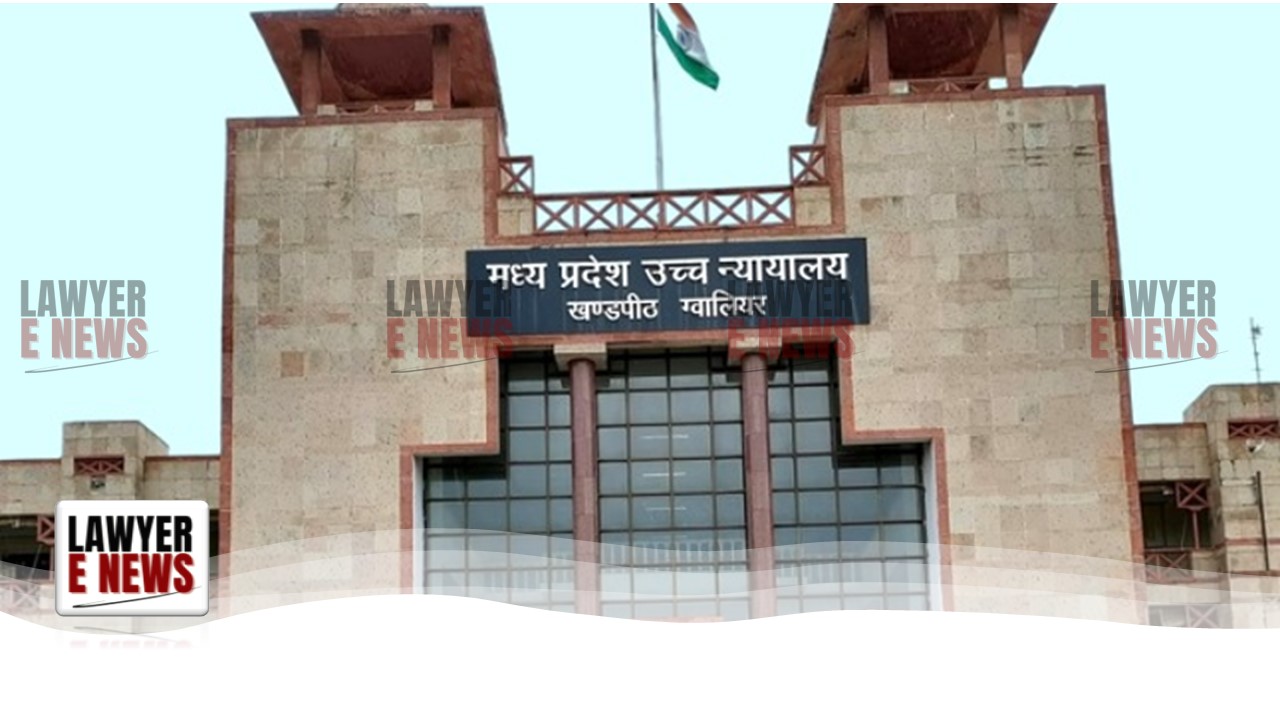-
by Admin
15 February 2026 5:35 AM



Madhya Pradesh High Court, in Maihar Cement Pipe Industries v. Union of India & Ors. (Writ Petition No. 14843 of 2024), quashed the award of a coal loading and transportation contract to the L-1 bidder chosen through a random algorithm on the Government e-Marketplace (GeM) portal. The Court ruled that the method used by the respondent authorities violated the specific tender terms, which required a "Reverse Auction" or submission of revised prices for selecting the final L-1 bidder.
The petitioner, Maihar Cement Pipe Industries, participated in a tender issued by respondent No. 3 for the loading and transportation of coal at Nigahi Wharf/Spur-2 Siding, Singrauli. The tender was for transporting 90 lakh tons of coal over three years. After the technical and financial evaluations, both the petitioner and respondent No. 4 were ranked as L-1 bidders, having quoted the same price of ₹64,06,56,525.60.
As per Clause 25.2(B) of the tender document, if there are multiple L-1 bidders, the final selection should be made either through a reverse auction or by inviting revised prices. However, instead of following this procedure, the respondents used a random algorithm on the GeM portal, known as the "Run L-1" option, to randomly select respondent No. 4 as the L-1 bidder. The petitioner challenged this decision, arguing that the use of the random algorithm was arbitrary, discriminatory, and contrary to the terms of the tender.
The core issue was whether the use of the GeM portal’s random algorithm to select the final L-1 bidder was permissible under the tender terms. The Court emphasized that the specific tender document, particularly Clause 25.2(B), mandated a reverse auction or revised price submission when there were multiple L-1 bidders.
"Clause 25.2(B) of the Tender Terms and Conditions specifically provides a mechanism for selecting the L-1 bidder amongst multiple L-1 bidders, and this mechanism overrides any conflicting provisions of the GeM portal," the Court noted [Para 14].
The Court found that the use of the "Run L-1" algorithm to randomly select the final bidder was arbitrary and irrational. It held that this method was not consistent with the tender’s prescribed selection process and amounted to a violation of the principle of fairness in the tender process.
"The mechanism of 'Run L-1' option leads to arbitrariness and illegality in the selection of L-1 bidders as it contradicts the specific terms of the Notice Inviting Tender (NIT), which supersedes the General Terms and Conditions of the GeM system," the Court observed [Para 19].
While recognizing the limited scope of judicial review in tender matters, the Court reiterated that judicial intervention is warranted when the process adopted by authorities is arbitrary or discriminatory. The Court cited established legal principles from cases like Jagdish Mandal v. State of Orissa and Ramana Dayaram Shetty v. International Airport Authority of India, emphasizing that the selection process must adhere to the prescribed rules and cannot be arbitrary.
"Judicial review in tender matters is intended to prevent arbitrariness, irrationality, and unreasonableness. The random selection of the L-1 bidder through the GeM portal's 'Run L-1' algorithm was arbitrary and violated the tender terms," the Court held [Para 7].
The High Court allowed the petition and quashed the Letter of Acceptance (LoA) issued to respondent No. 4 on May 22, 2024. It directed the respondents to adhere to Clause 25.2(B) of the tender terms and proceed afresh with the selection of the L-1 bidder through a fair process, either by inviting revised prices or conducting a reverse auction.
"The process adopted by the respondents in deciding the L-1 bidder is arbitrary, irrational, and discriminatory. The impugned Letter of Acceptance dated 22.05.2024 issued in favor of respondent No. 4 is quashed," the Court ruled [Para 22].
The Court emphasized that the tender process must strictly follow the rules laid down in the tender document and cannot deviate based on the terms of the GeM portal.
The Madhya Pradesh High Court's decision underscores the importance of adhering to specific tender conditions when awarding public contracts. The judgment reinforces that while the GeM portal provides a platform for e-tendering, its general terms and conditions cannot override specific provisions laid down in a tender document. This case serves as a reminder to government authorities to ensure transparency and fairness in the tender process.
Date of Decision: October 22, 2024
Maihar Cement Pipe Industries v. Union of India & Ors.
